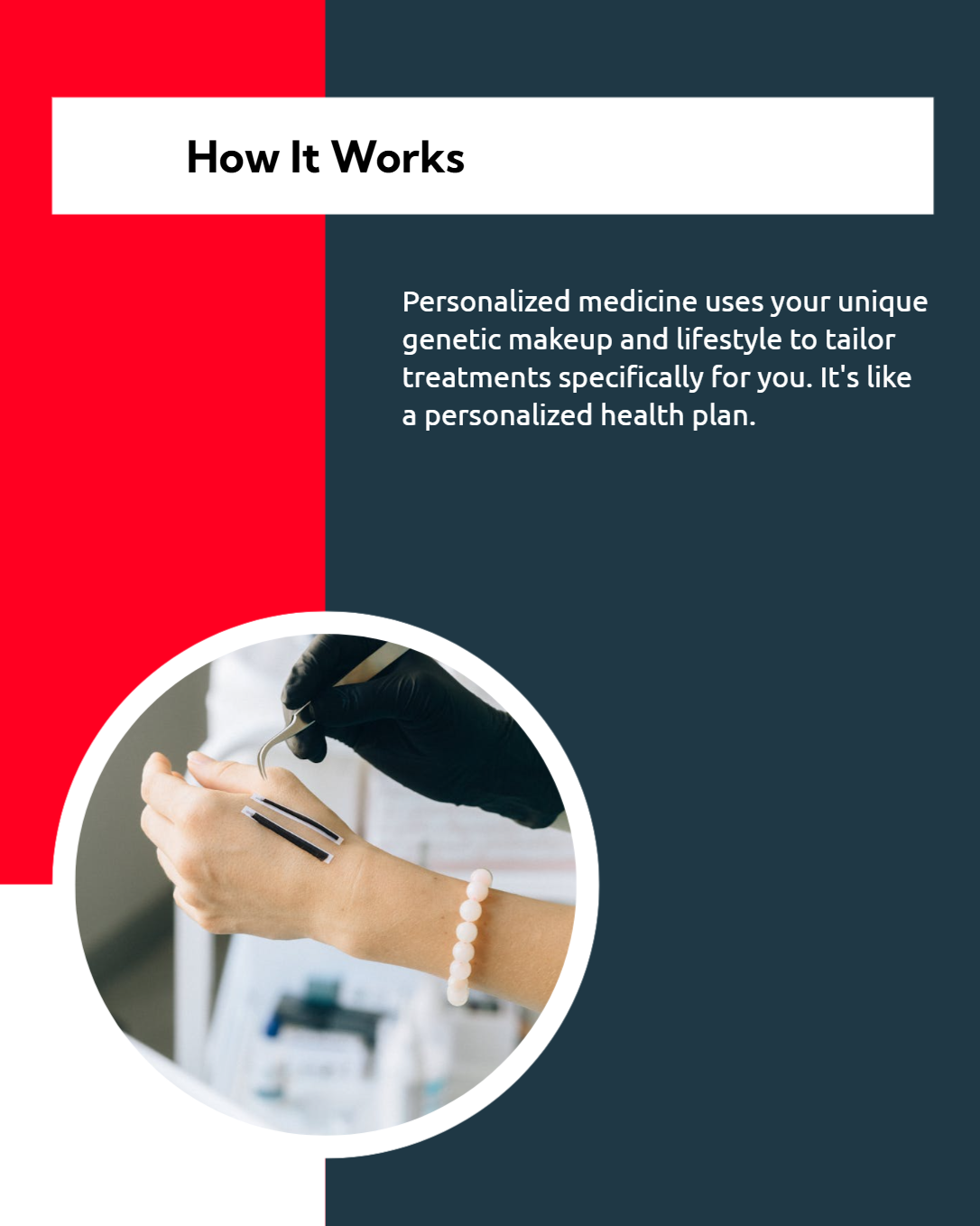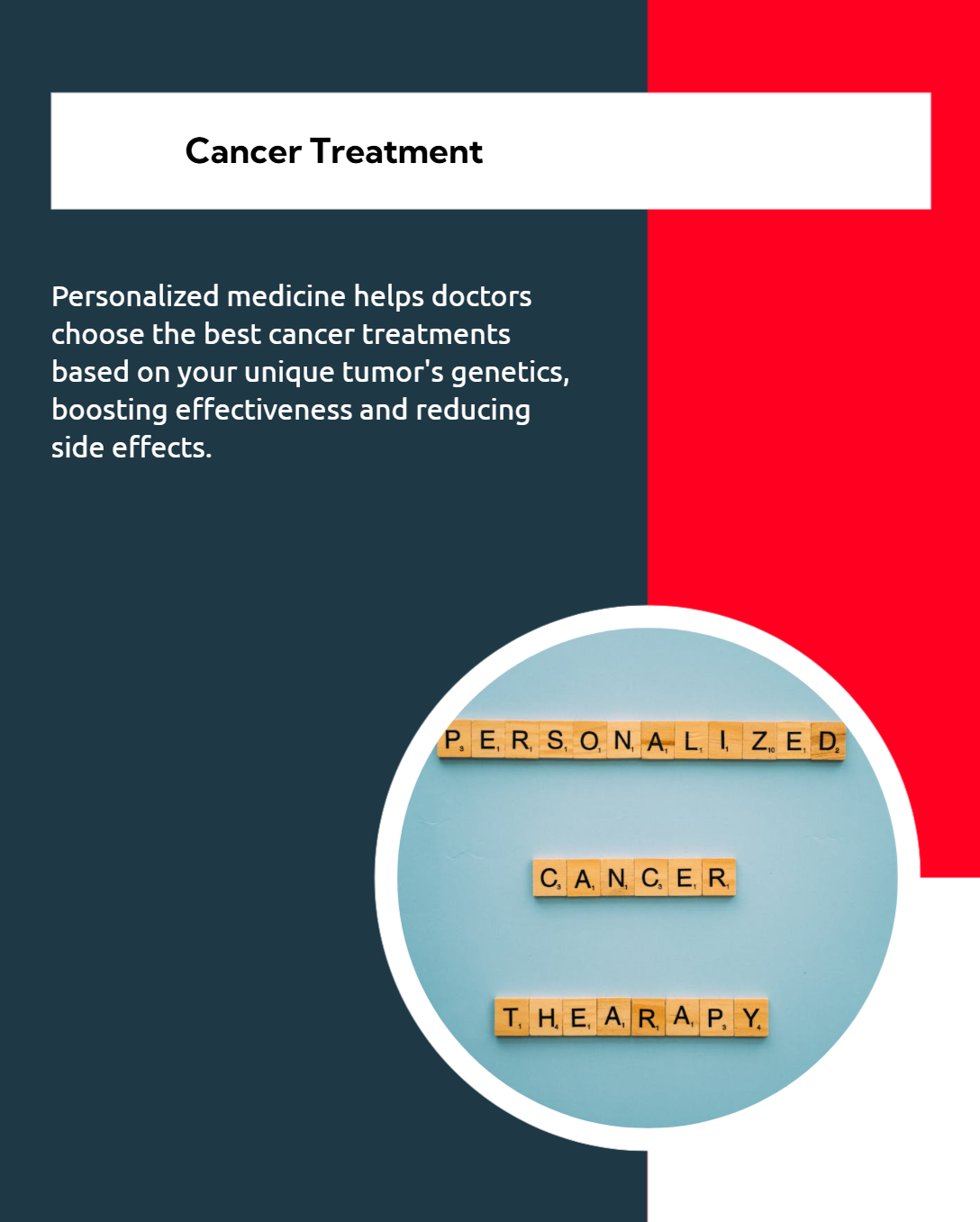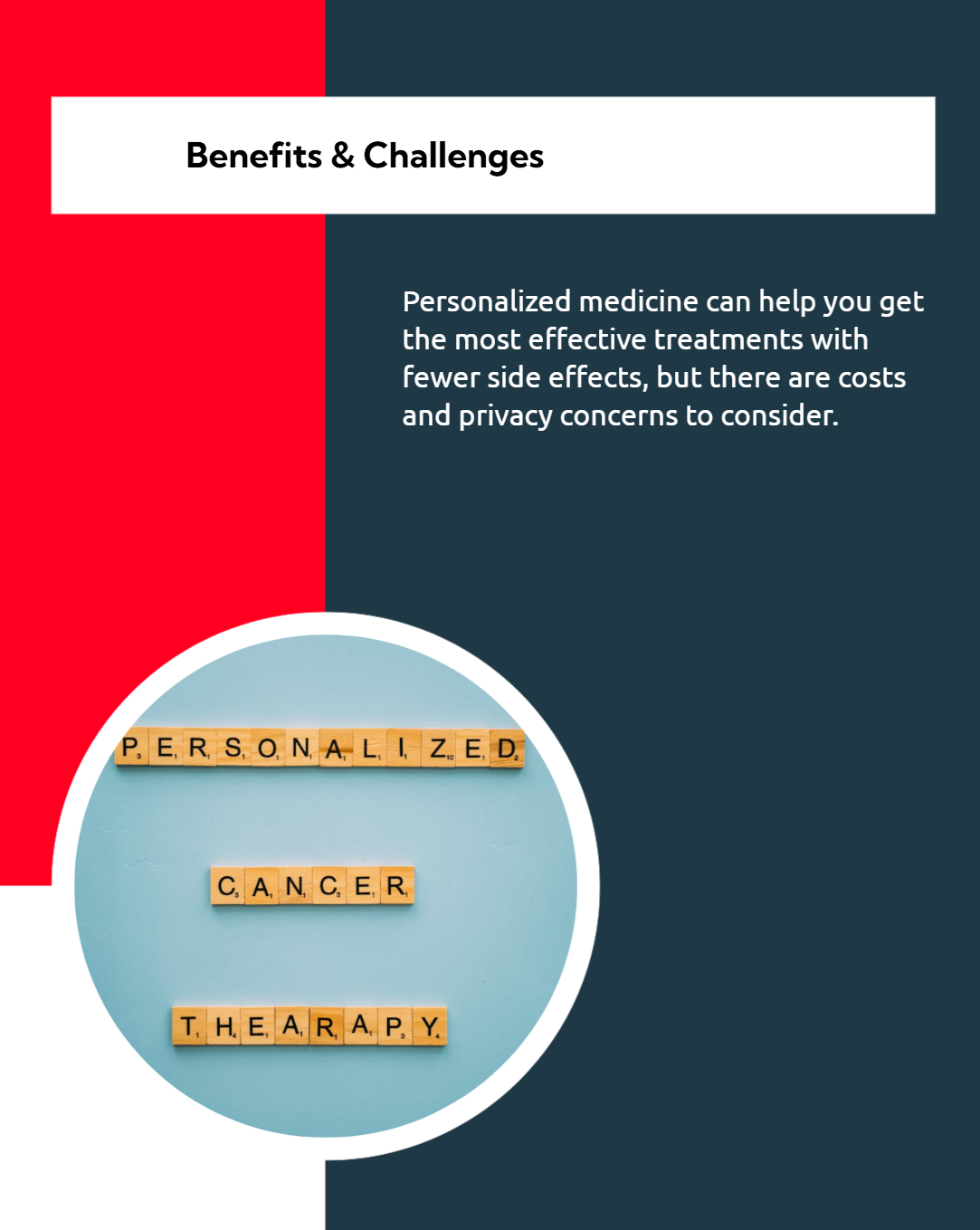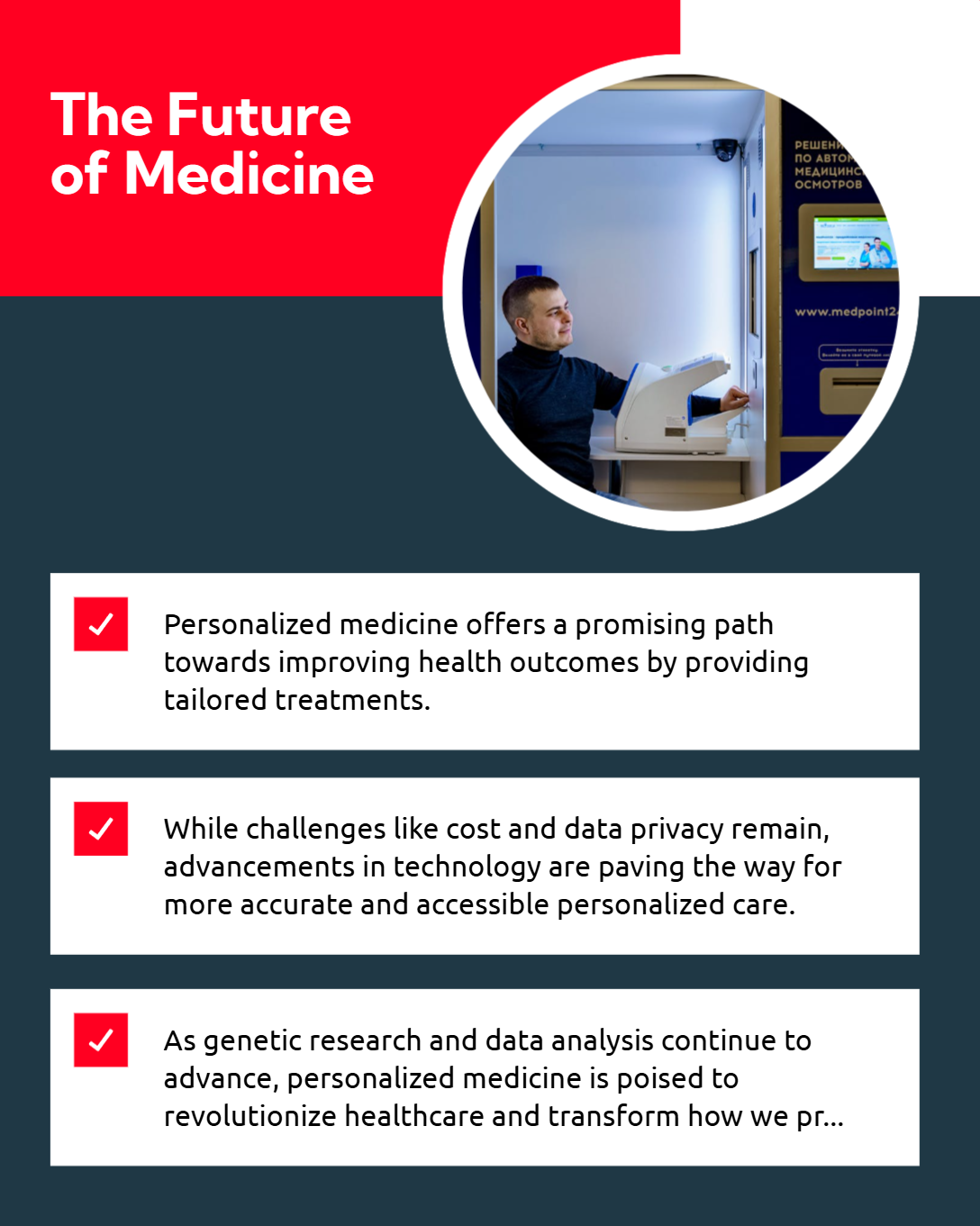
Personalized medicine is an innovative and evolving approach to healthcare that tailors treatment to the unique characteristics of each patient. By considering genetic makeup, lifestyle, environment, and other factors, personalized medicine offers more precise and effective treatments compared to the traditional “one-size-fits-all” model. This approach results in better diagnoses, improved treatment plans, and enhanced health outcomes.
For centuries, medicine followed a general model where doctors prescribed treatments based on broad categories. While this approach has helped many, it has limitations. As research into genetics, environmental influences, and individual health patterns advances, medical science has shifted toward personalized medicine.
Traditional medicine applies the same treatment to everyone with the same condition, regardless of their genetic makeup or other factors. Personalized medicine, however, focuses on the unique aspects of an individual's health, tailoring treatments to their biological and environmental profile.
Genetic testing is central to personalized medicine. Our genes play a vital role in determining how we respond to treatments. By sequencing DNA, doctors can identify genetic markers that influence how a person reacts to specific drugs or therapies.
Genomic testing analyzes a patient’s DNA to find genetic variations that affect their response to medications. For example, some genetic mutations affect how medications are metabolized, while others may increase disease risks. With these insights, doctors can prescribe medications that are more likely to work and avoid those that may cause side effects.

Personalized medicine is particularly impactful in cancer treatment. Traditional cancer treatments like chemotherapy and radiation were used universally, but responses vary. Genetic tests help identify cancer cell mutations, guiding the selection of targeted therapies that improve treatment outcomes and reduce side effects.

Pharmacogenomics is the study of how genes influence responses to drugs. This field aims to optimize drug therapies by accounting for genetic variations that affect drug absorption and efficacy.
Through pharmacogenomic testing, doctors can customize drug prescriptions. For example, some individuals may require higher or lower doses of a drug based on how their body metabolizes it.
In precision oncology, pharmacogenomics helps determine the most effective cancer treatments, offering a more targeted approach than traditional chemotherapy.

The future of personalized medicine looks promising, with advancements in genetic research, data analytics, and artificial intelligence. These technologies will enable more accurate and effective treatments. As genetic testing becomes more affordable and accessible, personalized medicine will revolutionize healthcare by transforming how we prevent, diagnose, and treat diseases.
Personalized medicine represents a revolutionary approach to healthcare by tailoring treatments based on genetic and environmental factors. While challenges such as high costs and data privacy concerns remain, its potential to improve health outcomes is immense. With continued advancements, personalized medicine will play an increasingly vital role in the future of healthcare.
Personalized medicine tailors treatments based on genetics, environment, and lifestyle, while precision medicine uses genetic data to target treatments for specific patient groups.
Consult your healthcare provider to determine if personalized medicine is suitable, especially if you have complex conditions or if traditional treatments have been ineffective.
Coverage varies depending on your insurance plan. It's important to check with your provider for specifics.
While it is most commonly used in cancer treatment, cardiology, and pharmacogenomics, ongoing research is expanding its use to other conditions.
Genetic testing is highly accurate but depends on test quality and interpretation. Consulting a healthcare provider is essential for proper application.
 06.12.2024
06.12.2024